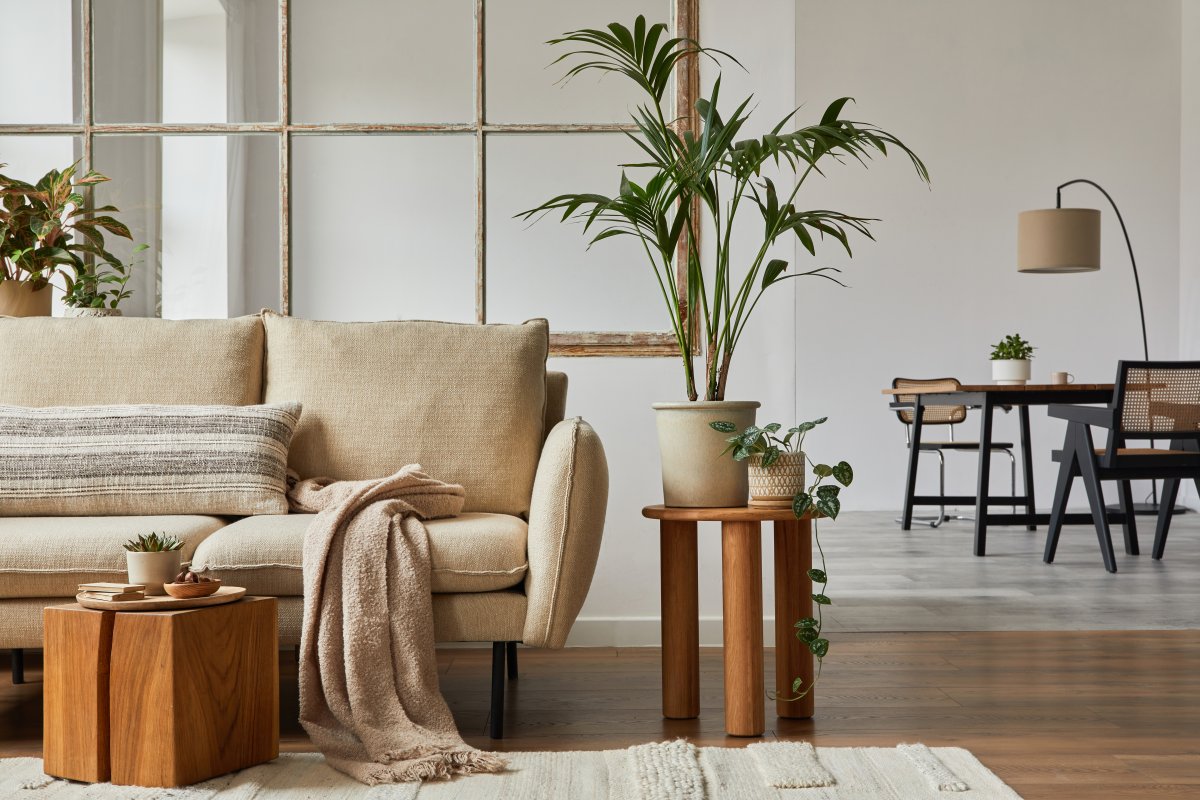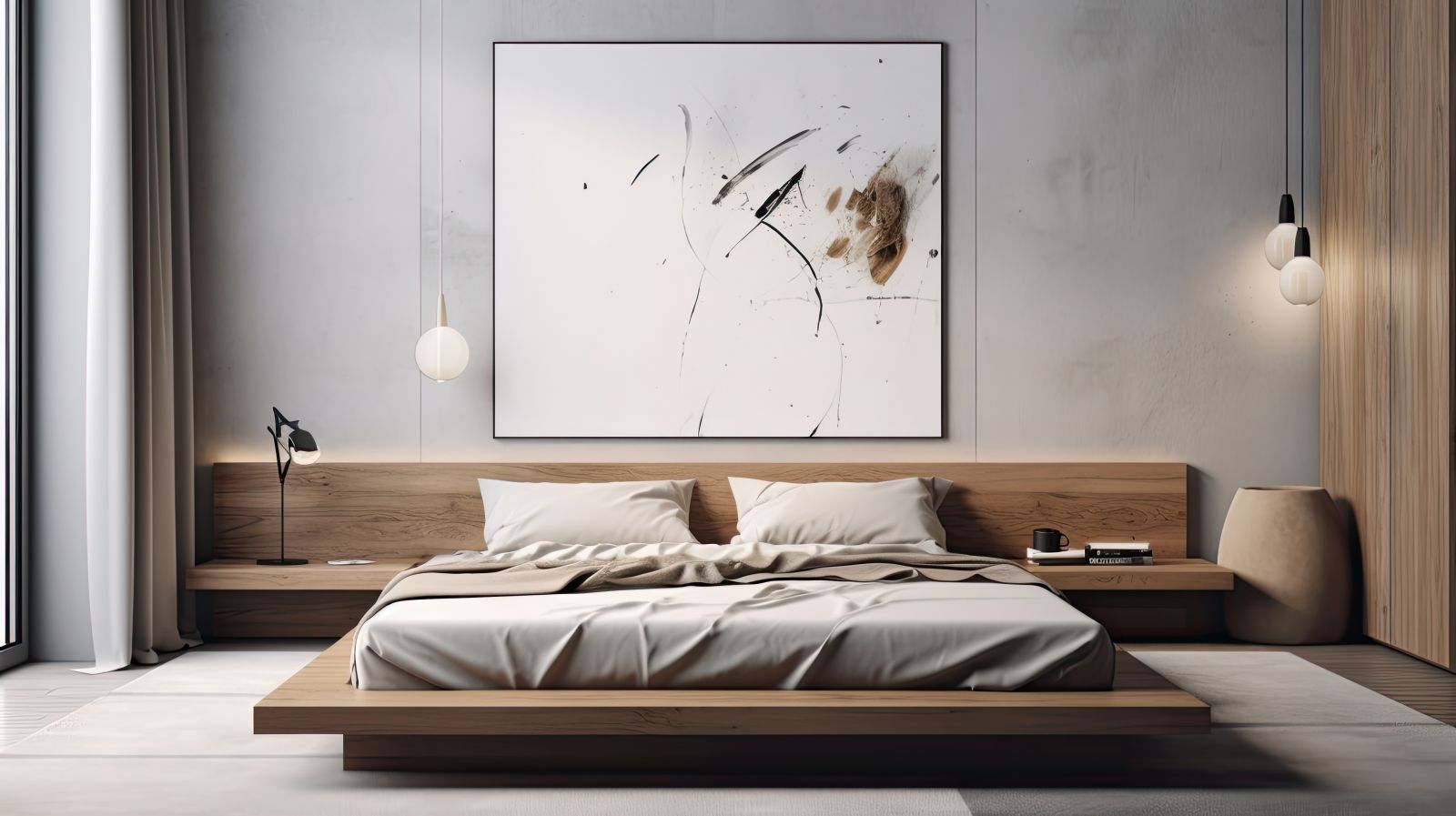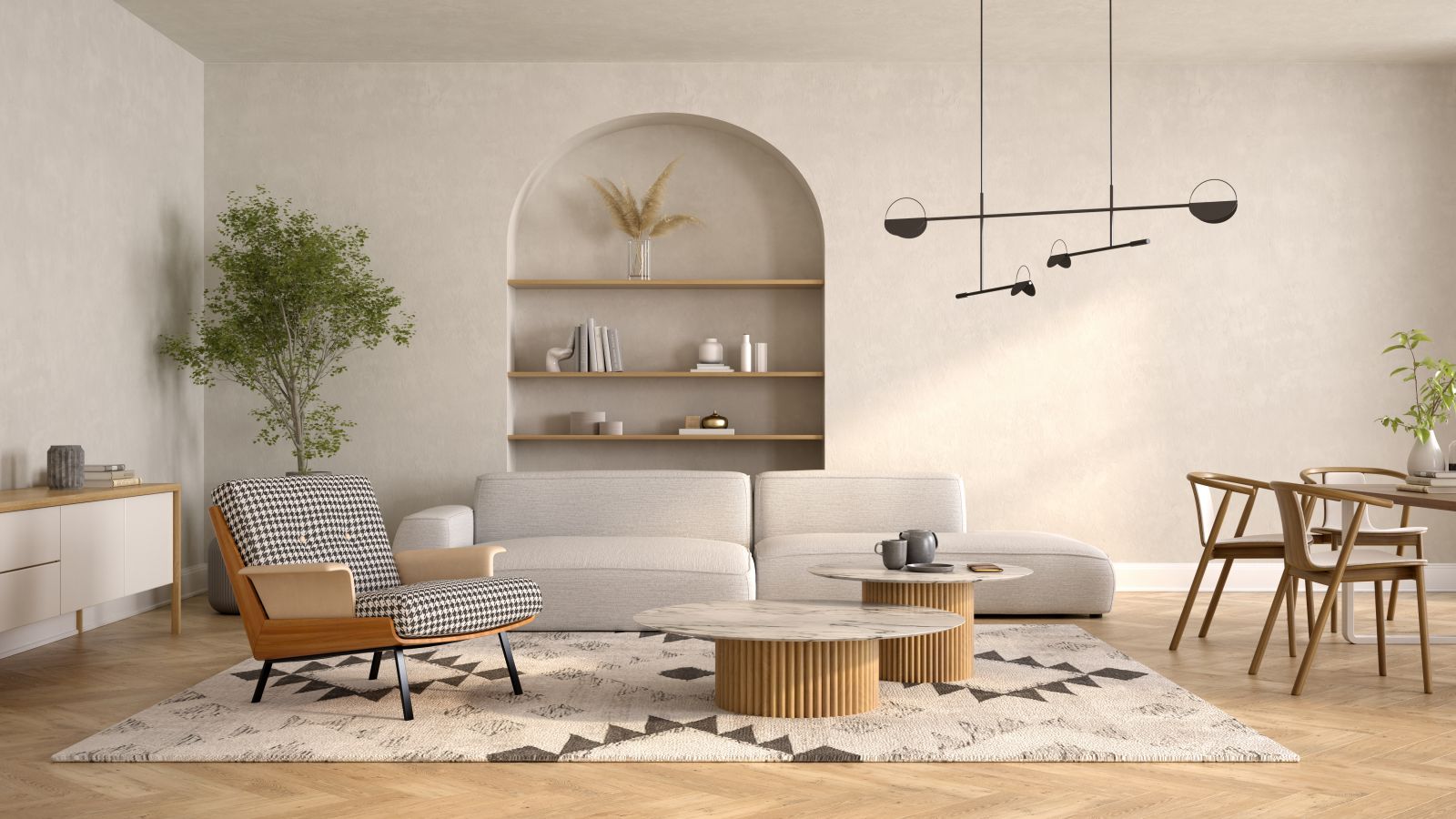How to bring harmony to your home: Your guide to good feng shui
When you come home after a long day, do you feel energised? Positive? Stress-free? If your answers are ‘no’, ‘no’ and ‘no’ – we get it. But what if we told you, with a few small changes, you can turn your space into an oasis? A place that brings calm to the chaos – and where your mind, body and spirit can feel at home? There’s a reason long-standing traditions like feng shui have stood the test of time. And we’re letting you in on the secret, with these dos and don’ts of proper feng shui.

What does feng shui even mean?
Before you start rearranging any furniture, let’s unpack what feng shui actually is.
When we talk about feng shui, we talk about:
- Chi: Positive energy.
- Sha: Negative energy.
- Yin and yang: Opposite, yet interconnected, forces – that are both necessary.
- The five elements: Wood, fire, earth, metal and water.
An amalgamation of ancient Chinese philosophy, medicine, mystic beliefs, and psychology, the words ‘feng’ and ‘shui’ translate to ‘wind’ and ‘water’ respectively.
The wind is our breath; the water is just us (humans are 60% water, after all!)
And sure – you can survive living in a space with poor feng shui. But in the long term, good feng shui is just as vital for your wellbeing as its translation is.
What’s the point of feng shui?
The goal of feng shui is to understand how chi, sha, yin, yang, and the five elements work together. And how we can use them to create harmony in our homes.
Like using yin, in the bedroom, to promote relaxation. But yang, in the kitchen, to encourage socialisation.
It’s all about balancing the interior and exterior of your home – which, in turn, balances the forces of the universe in your space.
Simple, really!

The five elements of feng shui
Wood, fire, earth, metal and water. We mentioned them earlier, but how can each of these elements actually contribute to good feng shui?
The answer is the three Bs: balance, balance, balance! Each element has its own, bespoke purpose – and promotes its own outcomes.
For example, you’d use:
- Wood for kindness and vitality.
- Fire for passion and creativity.
- Earth for health and stability.
- Metal for clarity and precision.
- Water for good fortune and abundance.
The best part? You don’t even need to employ the element itself.
Want to incorporate fire? Use bright colours. Keen to introduce water? Bring smooth, flowing elements into your home, instead.

The feng shui energy map
Okay – you know what feng shui is, its goal, and the five elements it’s made up of.
Now, if only there was a map that showed you how you could incorporate it into your own home.
Oh wait – there is! It’s called the bagua, and it’s one of the most important tools in implementing good feng shui.
The bagua shows how, through introducing colour, sculptures or other elements into parts of your home, you can achieve a desired effect. Be it prosperity, creativity, or personal growth:
.jpeg)
So, if you’re interested in taking a trip sometime soon, try placing a metal element in the front right sector of your home. You never know!
The don’ts of feng shui
When you’re working with the forces of the universe, it’s important not to take too many liberties.
So, if you want to create good feng shui in your home, make sure you do not:
- Block any doors: If not through the doors, how else can chi step inside?
- Leave out broken (or dead) objects: That pot plant that sheds more leaves than it spouts? Bin it!
- Let your windows get too dirty: In feng shui, windows represent the eyes of the home’s inhabitants. So clean your windows to ensure you’re seeing the world clearly.
- Overstuff your wardrobe: A full closet is like a sign telling the universe, ‘I’m at capacity – don’t send any opportunities my way, please!’
- Store things under your bed: In feng shui, you want air flowing all around you while you sleep. And that box of old dress-ups may get in its way!
The dos of feng shui
It’s all well and good to know what not to do – but there’s plenty more to promoting proper feng shui than simply doing the opposite of the above.
So, if you want to create peaceful and positive energy in your home, make sure you:
- Learn the ‘command’ position: Place your furniture (especially your bed, couch, desk and stove) diagonally opposite your door. This way, you can always see what’s coming and going – putting you in a position of power.
- Become a green thumb: Plants bring – and embody – life energy. Especially green ones.
- Slow the flow of energy: You don’t want your chi to walk out as soon as it walks in. So bring in some rugs, artworks, or – as above – plants, to add some organic obstacles.
- Clear out the clutter: There’s a difference between slowing the energetic flow, and overcrowding your space. So make sure there’s enough room for your body, mind and energy to wander freely – without getting distracted by that pile of paper on the table.
- Say thank you: In feng shui, everything is alive – including your home! So be sure to offer it your gratitude for sheltering you.
And while you’re at it, thank yourself for committing to creating a chi-friendly home.
